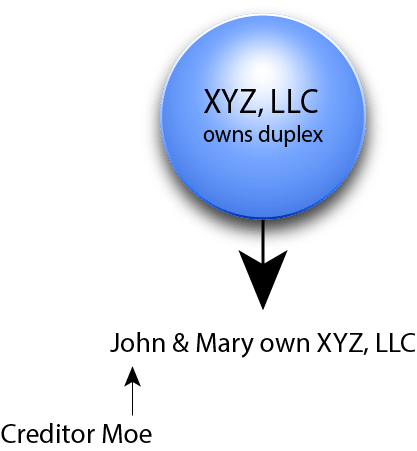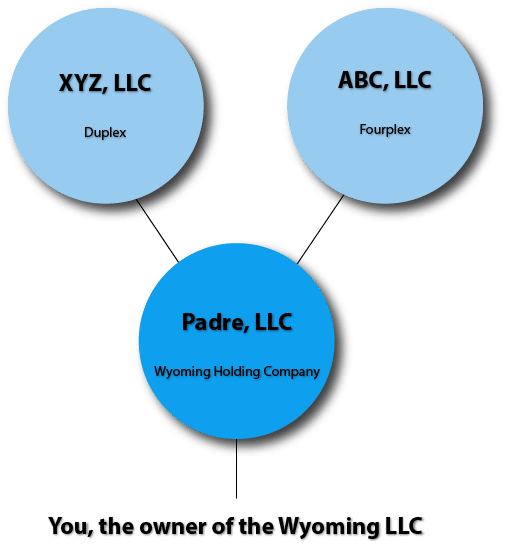
By: Ted Sutton, Esq.
Over the last few years, the use of blockchain technology has exploded onto the scene. DAOs have grown in popularity alongside it.
So, what exactly is a DAO? A DAO is a new entity form that stands for Decentralized Autonomous Organization. What’s unique about them is how they can be managed. Like other entities, individual members can manage DAOs. What makes them different is that they can also be managed by a smart contract on the blockchain ledger. This new and unique form of management has encouraged people to form them as partnerships, which offer no protection. Because of this, a better vehicle was needed.
In response to this demand, some states have already enacted new laws. Wyoming has passed legislation allowing for DAOs to be formed as “DAO LLCs.” Tennessee has passed a similar law allowing for Decentralized Organizations, or “DO’s.” These entities can be formed with the Secretary of State and provide the same asset protection as LLCs. Utah also passed a similar act that allows for the creation of “limited liability decentralized autonomous organizations,” or “LLDs” for short.
Proponents say that this smart contract management makes the DAO easier to be managed remotely, more efficient to govern, and removes any management conflicts between humans. While these things may be true, there are five reasons why we here at Corporate Direct do not recommend forming DAOs for our clients.
-
- The Smart Contract is open-sourced
The first reason is that the smart contract is available for public view. Because the smart contract is on the blockchain ledger, anyone can see how your DAO is being managed. On top of this, the Wyoming Secretary of State requires DAO applicants to include the smart contract’s public identifier when forming the DAO LLC. So anyone can see your LLC’s roadmap. Do you want the world knowing how you distribute profits? Unlike a DAO’s smart contract, an LLC’s operating agreement or a Corporation’s bylaws are not available for public view. Every other entity provides this type of privacy. DAOs do not, which is why we stay away from them.
-
- The DAOs can still be hacked
Second, DAOs can still be hacked, even with a smart contract in place. This happened in the California case of Sarcuni v. bZx DAO. In Sarcuni, people deposited digital tokens into the bZx DAO in exchange for membership interests. Over time, the DAO accumulated over $50 million worth of these tokens.
One day, one of the members received a phishing email from a hacker. After the member opened the email, the hacker was able to access the member’s private key and take $55 million worth of funds from the DAO. One would think that the DAO’s smart contract would have stopped this transfer. But that was not the case. In fact, the DAO had lost $9 million in three previous hacks.
On top of this, the court also found that because the DAO is not a recognized entity type under California law, DAO’s are treated as general partnerships. This means that if the DAO is sued, each of its members are personally on the hook for any liability. Was anyone sued personally for the loss of $64 million in the Sarcuni case? Under California law, they could be.
Given the recent rise in computer scams, any business can be a victim to them. But because DAOs with smart contracts face these same risks, they are a much less appealing option. Even worse, if your state doesn’t recognize DAOs, any member is individually liable for any claims brought after the DAO has been hacked.
-
- The law still applies to DAOs and their owners
We also don’t recommend the DAO since they may still be subject to other regulatory requirements, even when its owners try to avoid them. This happened in the case of Commodity Futures Trading Commission v. Ooki DAO. In Ooki, BZero X LLC operated a trading platform where people would exchange virtual currencies on the blockchain network. In an attempt to avoid regulatory oversight from the CFTC, BZeroX transferred their protocol into the Ooki DAO. After this move, the CFTC filed suit against Ooki.
The court found that because the DAO traded commodities, the DAO was subject to regulation under the Commodity Exchange Act (CEA). On top of this, the court found that under the CEA, DAOs are treated as unincorporated associations. Like general partnerships, this also means that Ooki’s members are subject to personal liability.
While people may think that they can use DAOs as a conduit to avoid the law, they are sorely mistaken. You are much better off using a traditional LLC.
-
- DAO owners can be personally liable if the DAO is sued
In states that do not have DAO legislation on the books, DAO owners can be personally liable if the DAO gets sued.
The Sarcuni court found that DAOs are treated like general partnerships. In addition, the Ooki court found that DAOs are treated like unincorporated associations under California and Federal law. In both of these cases, after the DAO was sued, all of its owners were personally liable for any judgment entered against each DAO.
From a liability standpoint, this is disastrous for every DAO member. However, members of properly formed LLCs and Corporations do not have to face this issue. If those entities are sued, their owner’s liability is limited to their capital contributions. Not so in states that don’t recognize the DAO as its own entity.
-
- There is too much legal uncertainty with DAOs
The fifth and final reason for DAO avoidance is that there is too much legal uncertainty associated with them. Only three states have DAO laws on the books. Because of this, there are neither enough regulations nor enough case law to regard DAOs as a safe entity to recommend to our clients.
There are simply too many unknowns at this point in time. And we don’t want our clients to be the test cases.
Conclusion
There is a chance that some of these things may change in the future. Additional states could pass legislation that treat DAOs like LLCs with their own liability protections. Smart contracts could do a better job of stopping hackers. Lawmakers and agencies may also enact clearer regulations regarding DAOs. But because people face these issues when forming DAOs now, we do not recommend them for our clients.
Corporate Direct has a weekly YouTube segment called Direct Answers from Corporate Direct
In this segment, we educate people on corporate law, business formation, real estate, wealth building, and asset protection. And if you have any general questions about something, please feel free to leave a comment on one of our videos!
For more of these updates, click the link below and subscribe to our YouTube channel.








